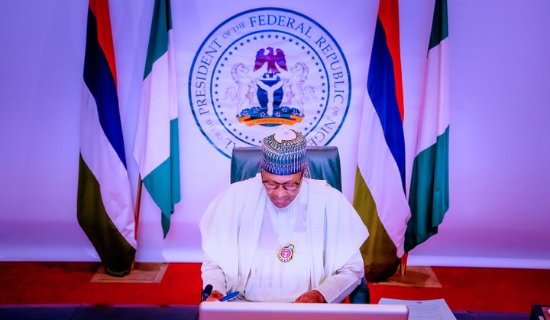PREMIUM TIMES EDITORIAL
Buhari rode to power on the crest of tremendous goodwill amid the failures of his predecessor.
The curtain falls on Muhammadu Buhari’s eight-year presidency today, as his successor, Bola Ahmed Tinubu takes over the baton of leadership. Precursory to this has been intense national debates on Buhari’s achievements or scorecard. He devoted the last two weeks in office to inaugurating projects, some of which have earned him plaudits even from his most trenchant of critics. And enamoured of these infrastructural imprints, he believes he is leaving the country better than he met it in 2015. This is hardly supported by evidence. Stark realities actually indicate the opposite, manifest in the harrowing experiences of the down-trodden, his documented lack of respect for the rule of law and numerous blunders in statecraft.
Buhari rode to power on the crest of tremendous goodwill amid the failures of his predecessor. His redemptive pledges on corruption, insecurity and economic resurgence seemingly had the animation of the famous revolutionary triad: Liberty, Equality and Fraternity. Unfortunately, President Buhari squandered the goodwill sooner than later, by allowing cronyism, sectionalism and lopsidedness to undermine his political appointments. This made nonsense of the, “I belong to everybody and I belong to no one” proclamation in his inaugural speech.
No doubt, insecurity was the biggest challenge he inherited. The entire North, particularly the North-Eastern states of Borno, Yobe and Adamawa, including Abuja, were earlier steeped in bombings and wanton killings. Buhari’s arrival, therefore, offered a new hope, with his military and public office antecedents, and deepened instantly by his declaration that Boko Haram would not be said to have been defeated until all the Chibok school girls kidnapped in April 2014 and other victims are freed.
But what is the reality now? Over 90 of these girls are still in captivity as he leaves office. Worse still, thousands of Nigerians have suffered the same evil fate, including Leah Sharibu, abducted on 19 February 2018, over five years ago. Nevertheless, with improved aerial fighting power through the A-29 Super Tucano fighter planes, the jihadists have been suffering heavy losses since last year and normalcy is gradually returning to the North-East.
Yet, the situation today is that Nigeria has never been more insecure than it experienced under Buhari. Killings by bandits, herdsmen and other criminal gangs, particularly in the North-West, North-Central and South-East, have turned the country into a place where the sanctity of life is hollow. Impervious to change, Buhari is leaving behind an ill-equipped, inefficient and centralised policing system that has left large swathes of the national territory in the control of non-state actors. As the Nigerian Security Tracker, a project of the Council of Foreign Relations of the US, put it, 53,418 Nigerians were killed between 29 May, 2015 and 15 October, 2022, in a country that is not in a formal war. The recent mass killings in Benue and Plateau states, and Zango Kataf in Kaduna State, once more, exposed Buhari’s deficit of empathy, or inability to connect with the people in their most trying times.


